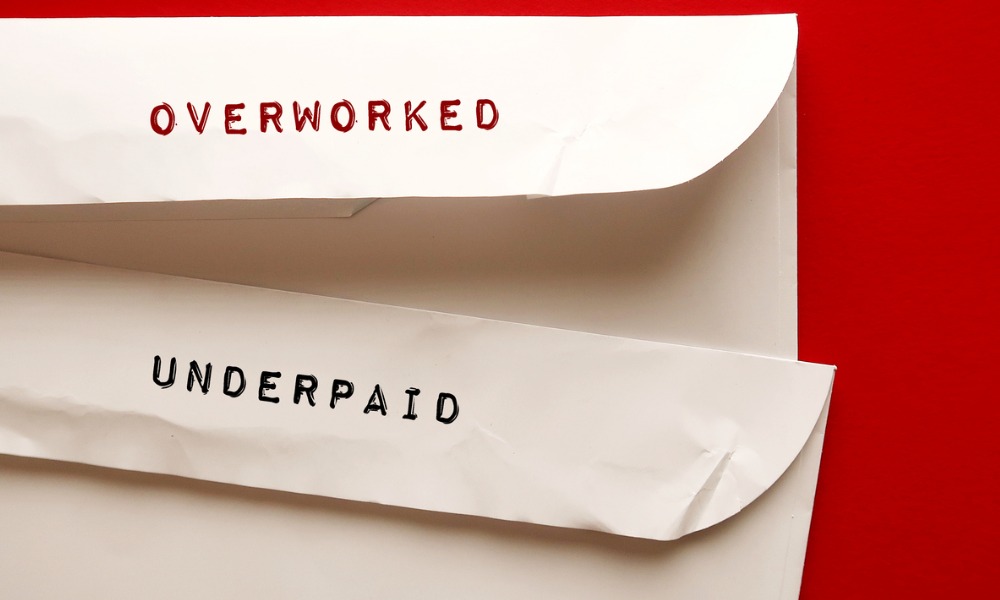'There are many circumstances where the side hustle takes off and starts to encroach into the primary role,' says employment lawyer

The number of people working multiple jobs has reached a record high, according to the Australian Bureau of Statistics (ABS). In the March quarter of 2023, there were 947,000 multiple job-holders, a 2.1% increase from the December quarter.
“This is the highest the multiple job-holding rate has been in the Labour Account data that goes back to 1994,” ABS head of labour statistics Bjorn Jarvis said.
“It means that around one in 15 people now have more than one job.”
The multiple job-holding rate was 6.6 per cent in the March quarter 2023 – up slightly from a rounded 6.6 per cent in the December quarter 2022. But in the December quarter 2019, before the start of the pandemic, it was 5.8 per cent, said Jarvis in a release.
‘People can squeeze a lot more into their day’
The changing nature of work is one of the reasons why Australians have been taking up multiple jobs, Fay Calderone, partner in the employment and workplace relations practice at Hall & Wilcox, said.
“Because we now have flexible work arrangements, people can squeeze a lot more into their day,” she said. “If they're removing travel from their day or they're working from home, I think there's an element where, just as a matter of practicality, it's easier to have the side hustle go in.”
Other factors contributing to the rise in multiple jobs holders are the increased casualisation of the workforce, inflationary pressures and the rising cost of living, Calderone said.
“People are turning to alternate means of income and that secondary employment to the extent that it's practically possible… to increase their disposable income,” Calderone said.
The legalities of working multiple jobs
With this jump in the number of multiple job holders, the challenge for employers is ensuring workers still remain compliant in their primary role.
Amid the changing nature of work, it would be unreasonable for employers to say employees can’t have a second job, particularly for employees who are working part-time or at reduced hours. But what is reasonable is to request that employees inform them of their intention to work a second job so that they can ensure there is no conflict of interest.
“If I'm working for Hall & Wilcox and I then take up a second job, even if I do it in my own time with another firm, then that would be a conflict of interest,” Calderone said.
The key is to look at the terms of their current contract, she said.
“If you sign up to a contract that requires exclusive employment, then it would be a breach of the contract to then obtain secondary employment,” Calderone said. “Quite often, those provisions say words to the effect that ‘you won't have a second job without our approval.’”
Another element for employers to consider is the extent to which an employee’s secondary employment impacts the primary employment.
“We've had quite a few cases like this where you've got a provision in the contract that says, ‘You’re to dedicate all your time and attention to the business of your employer during business hours’. And there are many circumstances where the side hustle takes off and starts to encroach into the primary role,” she said.
As a result of the side hustle’s success, an employee’s performance in their primary role can drop off.
“That obviously would then be grounds for performance management or disciplinary action on the basis that they're breaching their duty to the employer,” Calderone said.
How to handle multiple job-holders
When it comes to dealing with employees who have multiple jobs, Calderone said prevention is better than a cure.
“It's better to be transparent and I always think that from a communication point of view and a cultural point of view, it's always better to have – as well as compliance, of course – the right documents and frameworks in place at the outset to help you manage the fall out.”
“It may be particularly draconian in some industries, especially with inflationary pressures, the current state of the economy and the nature of work, to say, ‘No one can ever work a second job, if they want to work for us.’ They might be a bridge too far as a blanket rule.”
Instead, employers can put into contracts provisions that set parameters around secondary employment. For example, having an exclusive employment clause for senior or key roles that are full time where it would be unreasonable to have a secondary job on top of it.
“If you have those policy frameworks and documents in place that require people to disclose or seek approval, then that's all lawful and reasonable direction,” Calderone said.
“When something does go wrong and someone's job is encroaching or they have done something that prejudices or impacts their primary role, then there's a very clear, lawful, and reasonable basis for the HR professional to discipline the employee — and may ultimately lead to the termination of the employment.”








